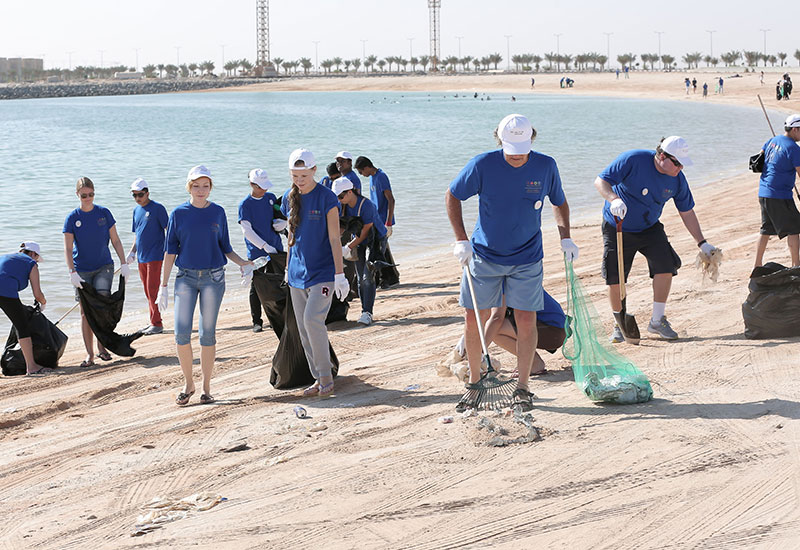The bigger picture
When it comes to sustainability, Meledo asserts the Global Week of Service does not mean the group’s sustainability and community initiatives are just one-off events.
“When we think about sustainability, it’s not just about recycling a can here or turning off the tap there; it’s not about reducing laundry and linen. We are looking at the engine here —we are talking about the industry as having an impact, both positive and negative.
“And that’s the trick… if you only continue to have a negative impact, you’re not going to be sustainable, you’re not going to get the numbers, and you will not be able to continue operating in the long term, so you also need to leverage the positive impact.”

| Advertisement |
It’s a sentiment echoed by Hilton Worldwide president Middle East and Africa Rudi Jagersbacher, who was also present at the event in Ras Al Khaimah to help divers clean the debris from the ocean floor.
He says: “That’s what tourism is about — longevity, and we want to be at the forefront with our sustainability efforts. Most big companies go into a certain location, make as much money as possible, and then move on. We don’t; we are part of the community, and therefore we have responsibilities.”
To drive the group’s Living Sustainably agenda, all Hilton Worldwide properties have to adhere to the group’s four pillars of corporate responsibility through sub-committees that focus on aspects such as team members, guests, sustainability, and the community.
“We have invested in that structure because we know it drives guest satisfaction, it drives sustainability, and the resilience of the engine, and ultimately it drives business; so it’s a win-win,” Meledo asserts.
In 2014, the Living Sustainably campaigns focused on different parts of the environment each quarter. For Q1 it was resources, followed by energy in Q2, water in Q3, and waste in Q4.
As part of the campaign, hotels are provided with checklists for every aspect of the operation across various departments. Additionally, the corporate offices provide support through competitions, suggestions, and toolkits to run the sustainability committees that are most relevant to individual properties.
“We are strict about the fact that it should be strategic, but not so much so that it prevents creativity. Emille came up with this idea herself, and that’s the kind of platform and enabling environment that our cultural committees encourage,” Meledo says, pointing to team member Emille Artigas, who organised the signature event.
Convinced that the partnership with PADI will be beneficial for both parties, Meledo also reveals the group will continue working with PADI’s non-profit arm, Project Aware, to expand the ocean clean-up campaign to other locations such as Dubai and Fujairah, as well as other regions.
“We are here for the long term. We’ve been here for 100 years and we want to be around for another 100 years. And for that to happen, we need to think carefully about what we really depend on to make that happen, and the environment and communities are a part of it; it’s part of the engine,” Meledo concludes.
Article continues on next page ...









 Search our database of more than 2,700 industry companies
Search our database of more than 2,700 industry companies









